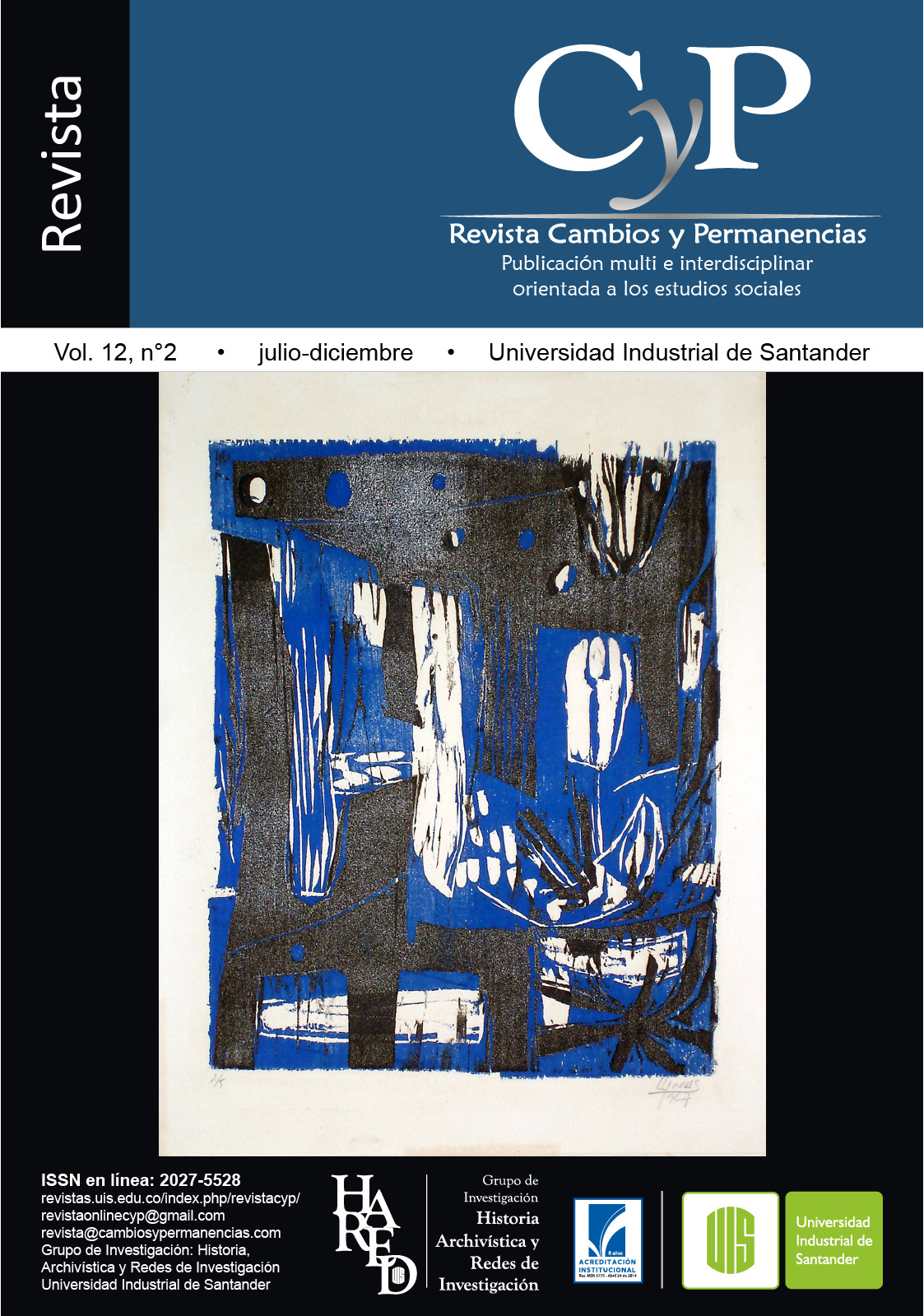Ways of knowing and doing from the knowing of the subjects. Decolonizing minds and hearts
Published 2021-12-13
Keywords
- Research,
- Complexity,
- Situated Subjectivity,
- Reflexivity,
- Transformation
How to Cite
Copyright (c) 2021 Revista Cambios y Permanencias

This work is licensed under a Creative Commons Attribution 4.0 International License.
Abstract
We share our reflections on ways of knowing and doing in social research based on the narrative reconstruction of our own experience in training and in the profession of researchers. We propose that it is necessary to overcome rationalist training models that deny subjectivity and alienate the conscience of the social and the possibility of being honestly and sensitively involved with people. We rescue the subject-subject perspective, an involved and situated subject. A subjectivity, built or molded in a context, a territoriality that has a diversity that is distinguished in its physical-natural dimensions, but mainly in its cultural attributes. The work on our implications requires reference to third parties, goes through other views, through the mediating action of others, requires alterations. There is, then, no self-analysis possible at work on implication and reflexibility. We highlight the complexity and multidimensionality of the approach to the social and its construction. Construction that must recognize the multisignification of the facts, to produce a shared knowledge and a discourse, which in terms of Giroux (1997), must account for the itinerant language of differences, assuming that there is no neutrality in the investigative work. Which results in an ethical / political commitment.
Downloads
References
- Referencias bibliográficas
- Ardoino, J. (2005). Complejidad y formación. Pensar la educación desde una mirada epistemológica. Buenos Aires, Argentina: Novedades Educativas.
- Arfuch, L. (2005). Identidades, sujetos y subjetividades. Buenos Aires, Argentina: Prometeo.
- Arfuch, L. (2018). La vida narrada. Memoria, subjetividad y política. Córdoba, Argentina: Eduvin.
- Bourdieu, P. (1999). Meditaciones pascalianas. Barcelona, España: Anagrama.
- Brunner, J. (1991). Actos de significado. Más allá de la revolución cognitiva. Madrid, España: Alianza.
- Brunner, J. (2002). La fábrica de historias. Buenos Aires, Argentina: Fondo de Cultura Económica.
- Fabris, F., Puccini, S., y Cambiaso, M. (2017). Subjetividad colectiva y realidad social. Una metodología de análisis. Buenos Aires, Argentina: El Zócalo.
- Ferry, G. (1997). Pedagogía de la formación. Buenos Aires, Argentina: Editorial Novedades Educativas.
- Giroux, H. (1995). Cruzando límites. Barcelona, España: Paidós.
- Loureau, R. (1991). El análisis institucional. Buenos Aires, Argentina: Amorrortu.
- Mosconi, N. (1998). Diferencias de sexos y relación con el saber. Buenos Aires, Argentina: Novedades Educativas.
- Ortiz Ocaña, A., y Arias López, M. L. (2019). Hacer decolonial: desobedecer a la Metodología de la Investigación. Hallazgos, 16(31), 147-166. doi: 10.15332/s1794-3841.2019.0031.06
- Palumbo, M. M., y Vacca, L. C. (2020). Epistemologías y metodologías críticas en Ciencias Sociales: precisiones conceptuales en clave latinoamericana. Relmecs, 10(2). doi: 10.24215/18537863e076
- Pichón Rivière, E. (1995). Teoría del vínculo. Buenos Aires, Argentina: Nueva Visión.
- Reinoso, M. (2019). Usos de Historia en Análisis Institucional. Los procesos de historización y su función subjetivante. XV Encuentro de Hermenéutica Aplicada. Memoria, Historia, Olvido. Universidad Nacional de la Patagonia Austral. Río Gallegos, Argentina.
- Reinoso, M. (2013). Socialización en el trabajo e identidad profesional. En Supervisores. La institución/organización de las funciones supervisivas en el campo de la educación (pp. 98-101). Buenos Aires, Argentina: UNPA-Edita.
- Sandoval, R. (2021). Precisiones sobre el sujeto. Documento Inédito.
- Torres Carrillo, A. (2011). Investigar desde los márgenes de las ciencias sociales. En S. Fernández Moreno, M. Gómez Builes y M. C. López Muñoz (comp.), Conversaciones sobre las prácticas investigativas desde la pregunta por las metodologías críticas en contextos sociales de despojo, destierro y desplazamiento forzado: elementos provocadores para una filosofía de la praxis. Colombia: Departamento de Trabajo Social Facultad de Ciencias Sociales y Humanas Universidad de Antioquia. Recuperado de https://www.ub.edu/copolis/wp-content/uploads/2012/01/MEMOIRIAS-TALLER-METODOLOGICO.pdf
- Torres Carrillo, A. (2014). Producción de conocimiento desde la investigación crítica. Nómadas, (40), 68-83. Recuperado de http://nomadas.ucentral.edu.co/index.php/inicio/9-problemas-sociales-contemporaneos-nomadas-40/52-produccion-de-conocimiento-desde-la-investigacion-critica
- Torres Carrillo, A., y Torres Azocar, J. C. (2000). Subjetividad y sujetos sociales en la obra de Hugo Zemelman. Folios, Nº 12. doi: 10.17227/01234870.12folios12.23
- Valiente, S. (2020). Hacia otras formas de conocer desde saber-hacer de los sujetos. Cambios y Permanencias, 11(1), 548-571. Recuperado de https://revistas.uis.edu.co/index.php/revistacyp/article/view/11073
- Valiente, S. (2020). Ser sujeto implicado y situado en la investigación. Documento inédito.
- Zemelman, H. M. (2005). Pensar teórico y pensar epistémico: los retos de las ciencias sociales latinoamericanas. México: Instituto Pensamiento y Cultura en América Latina (IPECAL).
